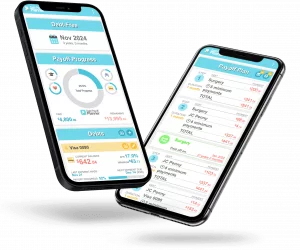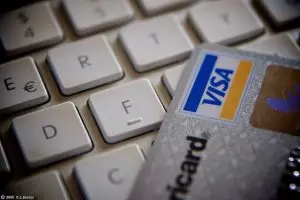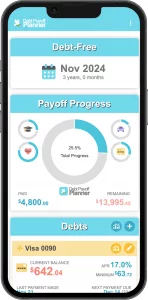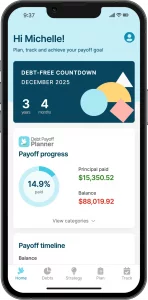I’m a tool guy. Set me loose in a hardware store, and I probably won’t be back in time for dinner. But just because I love figuring out how a specific tool might be used, it doesn’t mean I would ever want to use it. Usually, I understand how the tool works and how to use it, but if I don’t catch the vision of how that tool will put a smile on my face or my wife’s face almost immediately, I can easily pass. The same goes for any great tool. We need the motivation to use it no matter how cool or perfectly designed it is. That’s why well-designed apps like the Debt Payoff Planner incorporate features that lead users to action, like weekly emails for those with accounts.
How can you stay motivated to stick with your debt repayment plan, especially if you have a partner or spouse that doesn’t have the same commitment to being debt-free as you have?
To create self-motivation or to motivate your spouse or partner to stick with your Debt Payoff Plan, create rewards you can enjoy each time you pay off an account balance. These might include special dinners, an overnight stay at a favorite hotel, or a day at a favorite amusement park.
Honestly, it doesn’t matter if you’re dealing with credit card debts, medical collections, old utility or phone bills, student loans, auto loans, or even a mortgage. It doesn’t even matter how you got into debt, whether due to forces outside your control or because you let your spending get away from you.
The past is gone, so it’s what you do with your present that can change your future.
So, to create the future you want requires that you find and maintain the motivation today to do what is necessary. Of course, this is easier said than done. We often believe that just having enough willpower is sufficient, but we also acknowledge most of us don’t have it in sufficient quantities.
Motivating Yourself
According to Florida State University willpower researcher, Roy Baumeister, Ph.D., humans require three essential elements to achieve our objectives:
- Set a clear purpose to create motivation
- Monitor your progress towards your goal
- Practice willpower
This should sound familiar to Debt Payoff Planner users, right? Goal setting and progress monitoring are big parts of the app experience. What about the willpower component? As “the ability to resist short-term temptations… to meet long-term goals,” willpower can actually be fostered in yourself and others (e.g. your spouse) and needs protection.
Setting a Clear Purpose
Hopefully, you have already set your debt payoff goal. Ideally, it will go beyond just the numbers of how much debt to pay off, the size of your monthly payment, and the number of months you will need to become debt-free. Include in your goal the emotional aspect of your achievement. How are you going to feel when you make that final payment? What will that do for your life? What will it permit you to do next? Effective goal setting requires answers to some demanding questions.
Monitoring Your Progress
The importance of monitoring your progress can’t be overstated. Business consultants and leaders constantly preach the lesson that what gets measured gets managed. If you’re not measuring your progress, you lose track of it, and losing track essentially means you lose interest.
The most obvious power of debt payoff apps like the Debt Payoff Planner is its ability to show you where you are in your repayment plan, where you’ve been, and the projected path you are on into the future. Such visuals immediately provide you with a renewed sense of purpose and even action.
Don’t stop looking at your notifications from your payoff planner. Don’t ignore your updates. Stay involved, stay updated, and you will stay motivated.
Practicing Willpower
We tend to believe that willpower is something you’re born with or blessed with, that somehow you can’t create or develop it. Fortunately, there is much you can do not only to generate more willpower but also to grow it and protect it, not only in yourself but also in others.
Identifying your motivation above is the birth of your willpower, but willpower also implies an aspect of enduring difficulties. Monitoring your progress nourishes your willpower. However, this also suggests that by ignoring your progress reports, you might starve your determination.
I love the 1998 study done by Roy Baumeister’s lab that involved setting in front of a test subject a bowl of radishes and a plate of fresh-baked cookies (with their aroma filling the room). Some subjects got to sample the radishes with others eating the cookies. Thirty minutes later, they were then given 30 more minutes to complete a difficult geometric task.
Those who had to resist the cookies and consume the radishes gave up on average 11 minutes earlier than those who got to indulge in a cookie. This seems counterintuitive to a society awash in studies that show we feel better, perform better, and think more clearly when we eat healthy foods.
However, this study and apparently several others that followed identified the existence of “willpower depletion.” If we use our willpower to resist a difficult short-term temptation, we have less of it to focus on a subsequent undertaking.
What this tells me is that if you offer yourself and/or your spouse a simple, brief reward from time to time for the progress made on your debt payoff plan, you would both be more likely to stick with the continuing tasks of paying off other accounts.
Motivating Your Significant Other
Before going into possible ideas for these rewards, allow me to first address what I’m sure many readers are thinking: “I shouldn’t have to bribe someone to do what they know is right.” When I hear such statements, I’m reminded of what one of our children’s counselors told my wife and me when we reacted the same way to his suggestion of offering rewards for good behavior. He said, “it’s not a bribe if it’s not illegal.”
And you know what? It’s true. Plus, it works!
Don’t think of a reward as a bribe. People use bribes to cover up mistakes or problems. Rewards are there to encourage continued, positive actions.
With that said, here’s a rewards system I’ve suggested to hundreds of couples and thousands of course participants over the past two decades:
Each time you pay off a debt, take 50% of the monthly payment you were sending to that account and use it to reward the one in the relationship needing a small push to stick with the debt elimination game plan. If you just paid off a credit card on the 4th of last month, and the monthly payment was $300, then on the 4th of this month, take $150 and go do something indulgent, adding the other half of the previous payment ($150) to the payment on next account on your repayment list.
As long as it’s legal, don’t limit yourself or your partner. It might involve going out for a nice dinner, spending the day at an amusement park, going on an overnight adventure, or even purchasing something special for each other. It doesn’t have to be lasting or durable. It can be simple. It can be a service. It can be anything you enjoy.
If you truly don’t have anything you could find joy in purchasing, then take that $150 and add it to your savings fund, contribute it to your retirement account, or stash the money as an investment to start up your own business. Whatever you do, make it meaningful.
Then, the next month, with your willpower tank back at full, send the entire amount ($300) to the next debt on your list, in addition to that account’s minimum payment.
In some cases, where you feel your partner’s willpower seems to be waning, you might even decide to use the entire previous monthly payment (all $300) as a reward. Try not to do this early in the process or too frequently so it does not set a precedent or become the expectation.
Keep in mind that your ultimate purpose is to accelerate your debt repayment, saving you time and money over the long term.
Brainstorming List of Motivational Expenses
Do you need some additional inspiration for your rewards? Consider the following list:
- Add a new tech accessory to your home
- Assemble a video studio (green screen, lights, tripod, and microphone)
- Buy a new coat or article of clothing
- Catch up on your doctor visits and prescriptions
- Check out a new webcam
- Donate to your favorite good cause
- Fill out your music or audiobook library
- Get that new, larger computer monitor you’ve had your eye on
- Invite some friends over for a “catered” dinner
- Pick out some new shoes
- Plant a tree in your yard
- Repair something small on your car or truck
- Replace or upgrade a small kitchen appliance
- Support your local public radio or TV station
- Travel to the nearest national park you’ve never visited
- Update your wardrobe
Your Debt-free Life
Once you have achieved your goal and repaid all your debts, take half of your final payment and celebrate with it the next month. Try to deposit the other half into your emergency savings, retirement, or other financial goals. Then, continue using that former monthly payment as an ongoing source for contributions to these accounts.
If you’re looking for additional resources navigating your personal finance journey, be sure to checkout the Money Fit Show podcast that I host. I recently sat down with the co-creator of Debt Payoff Planner to discuss how people are successfully navigating their debt-free journeys. Listen to the episode here.












